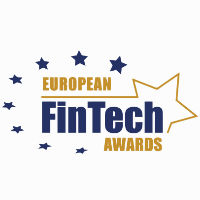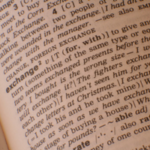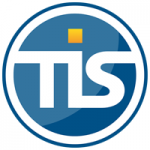Smart contracts – oxymoron or the future for business?
| 16-03-2018 | treasuryXL |
 On Tuesday 13th March 2018, RTL Z – a television channel – broadcast a “Cryptoshow” to explain how the Blockchain works and what it could mean for the future. They attempted to make the technology and information as simple as possible to show what uses the Blockchain could have in the world for consumers and businesses. One of the main areas of interest relates to Smart contracts. What are they? What are the advantages and disadvantages? What changes can they bring?
On Tuesday 13th March 2018, RTL Z – a television channel – broadcast a “Cryptoshow” to explain how the Blockchain works and what it could mean for the future. They attempted to make the technology and information as simple as possible to show what uses the Blockchain could have in the world for consumers and businesses. One of the main areas of interest relates to Smart contracts. What are they? What are the advantages and disadvantages? What changes can they bring?
Definition
Wikipedia defines a Smart contract as “a computer protocol intended to digitally facilitate, verify, or enforce the negotiation or performance of a contract. Smart contracts allow the performance of credible transactions without third parties. These transactions are trackable and irreversible”.
These contracts facilitate the transfer of goods, services, property, money – in fact anything of value – in a manner that is transparent and direct. It removes the role of an intermediary.
How they work
- You agree to enter into a transaction
You draw up an agreement electronically
The agreement is encrypted and placed on a secured shared ledger accessible to the counterparty
As this is the Blockchain, the data is backed up at various other locations
Both parties perform as per the agreement
Costs are reduced by the absence of intermediaries
As both parties have agreed to the contract they are faster and less expensive to administer
Being electronic there is less possibility of errors occurring due to manual input
Advantages
- Both counterparties receive an identical agreement
You decide who can access and amend documentation
Rules that have been agreed upon define how changes can be made
Any agreed change in one document is automatically made to all relevant documents
Encryption and the methodology of the Blockchain ensures that transactions cannot be altered after being agreed and the block validated
Disadvantages
- Are they enforceable by law
No action written in a contract can be against the law of the land
Contracts still have to be written – electronically. This entails human involvement that could lead to errors
Considerable knowledge of computer coding is required
Lawyers still need to be involved in the formation of the contracts
Costs – employing these specialists will come at a steep price
What further uses can the Blockchain provide
Digital identity – it will be possible to identify an agreed counterparty and all their static data can be stored
Proof of provenance – especially for ethical businesses, it will be possible to issue certificates proving the source of goods
Communication within the supply chain – discrepancies will show up and can be proactively addressed
Payments – removing financial intermediaries implies quicker payments and reduced costs
Ownership – Smart contracts enforced by law make it possible to register the legal owners of goods and property
Loyalty programmes – with all the details present from all transactions, it is possible to initiate programmes to reward clients/customers
The greatest savings will be seen in processing – both in time and costs. Some reports suggest savings of up to 40% can be established, together with a real-time overview of positions. However, the whole system relies on one major factor – trust. Where we previously met people, negotiated, agreed etc., now we will do more of that online. Furthermore, implementation of a Blockchain strategy will require a company to complete revaluate their current way of working, leading to considerable planning and strategic positioning.
The proposed future looks exciting – it is now up to industry to determine the road on which they wish to travel.











